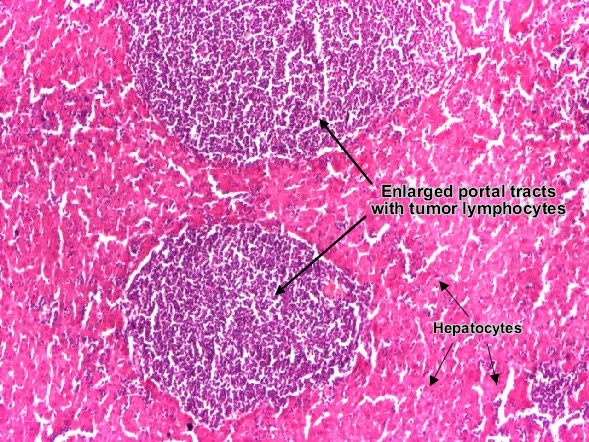Chronic lymphoid leukemia (liver)
Leukemia is a monoclonal malignant proliferation of stem cells of bone marrow, with replacement of normal bone marrow by leukemic cells, accumulation in peripheral blood and infiltration of organs (i.e., lymph nodes, spleen, liver, kidney). As a result of bone marrow infiltration, one or all series are suppressed, generating pancytopenia (anemia, neutropenia and thrombocytopenia).
Leukemia classification, based upon clinical and histogenetic criteria :
- Acute leukemias (proliferation of young, immature elements)
- Lymfoblastic
- Myeloblastic
- Chronic leukemias (monoclonal proliferation of non-functional lymphoid and myeloid elements)
- Lymphocytic (lymphoid)
- Granulocytic (myeloid)
Chronic lymphocytic (lymphoid) leukemia is a malignant lymphoid proliferation, similar to a low-grade lymphoma, but affecting mainly the bone marrow and the peripheral blood.

Chronic lymphocytic (lymphoid) leukemia (liver). Tumor lymphocytic infiltrate into the portal tracts, which appear very enlarged, lacking normal structures. These tumor lymphoid cells resemble normal lymphocytes (small, monomorphic, round hyperchromatic homogenous nuclei, reduced cytoplasm), but are immature, monoclonal and non-functional. With evolution, the tumor cells will infiltrate the lobules. (H&E, ob. x10)

